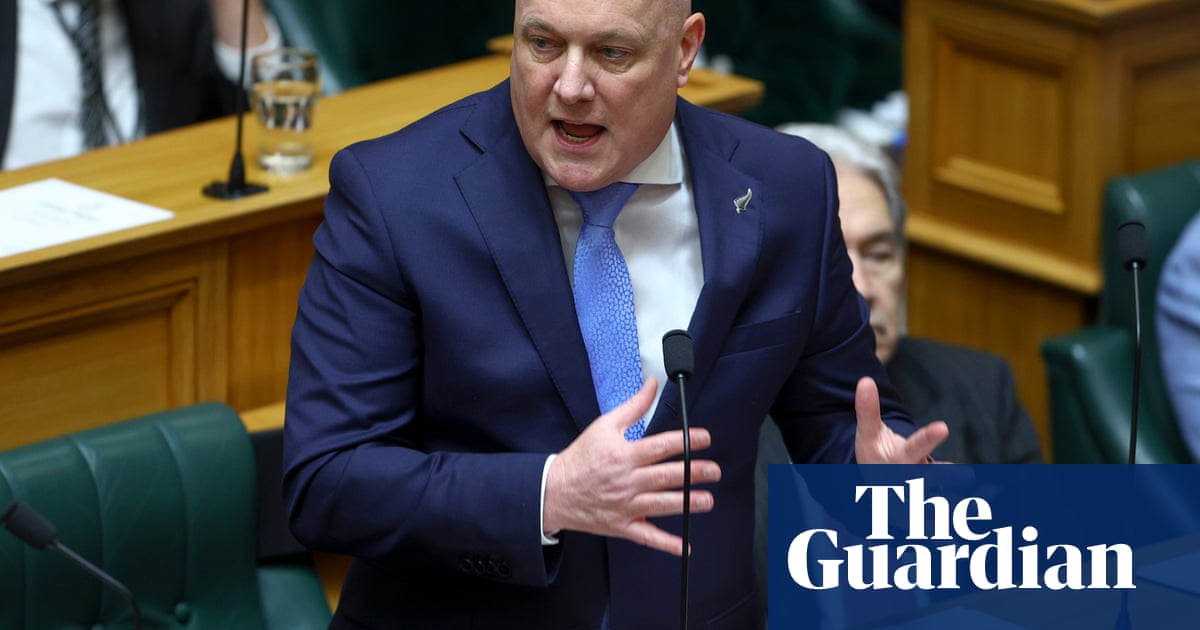New Zealand’s prime minister has suggested introducing new privacy laws after his deputy press secretary was allegedly caught making audio recordings of sex workers without consent.
Michael Forbes, a senior aide, resigned after the local news outlet Stuffalleged he covertly recorded audio of sessions with sex workersand secretly photographed women at the gym.
The prime minister,Christopher Luxon, said he was “shocked” by the news – but it was unclear whether Forbes had broken the law.
“If you’re a New Zealander you ask quite legitimate questions about how does this behaviour happen, and is it legal or illegal,” he told reporters on Thursday. “I have that same reaction to it as well.”
The manager of a Wellington brothel where the recordings allegedly took placetold the broadcaster RNZthat privacy laws needed overhauling when it came to recording people without their knowledge.
“This is an issue for all women. Women are being recorded, photographed, filmed without their consent or knowledge and heaven only knows where it’s ending up. This is the main issue and that’s what needs to be focused on.”
Luxon said new privacy laws could be drafted to clear up the legal grey area. “I’m open to looking at our settings again as we go through this experience. We have a series of laws, whether it’s the harmful digital bill, whether it’s the privacy laws, or now new stalking laws, but we’re open to looking at that further as well,” he said.
The incidents were investigated by police but did not lead to any charges, Luxon said, and occurred after Forbes had been vetted to work for the social development minister, Louise Upston.
Forbes had an obligation to declare those incidents to the prime minister’s office “because it impacts the office and the reputation of the office, for obvious reasons”, Luxon said. “But that didn’t happen.”
In a statement to RNZ, DI John Van Den Heuvel, the Wellington district manager of criminal investigations, said police also found “a number of photos and video of women in public spaces, and what appears to be women in private addresses, taken from a distance away”.
Police considered the available evidence and concluded it did not meet the requirements for criminality, and therefore charges could not be filed, he said.
“The individual concerned voluntarily spoke with police and admitted to taking the images and recordings. He was reminded of the inappropriateness of his behaviour and encouraged to seek help,” he said.
Forbes deleted the images in the presence of police.
Police were unable to progress the matter further, but should any new information arise, it would be “thoroughly considered”, Van Den Heuvel said.
The police commissioner, Richard Chambers, told the media on Thursday the Department of Internal Affairs would conduct a “deep dive” into what had happened. Chambers said the allegations were “obviously very concerning” but did not believe police had erred by not charging Forbes.
“I have faith in the decisions that have been made based on the [information] that’s been available to the investigation team or district crime manager in Wellington,” he said.
Forbes, a former journalist who became Luxon’s deputy chief press secretary in February, apologised in a statement sent to the media.
“I want to offer my sincerest apologies to the women I have harmed,” he said. “In the past, I was in a downward spiral due to unresolved trauma and stress, and when confronted with the impacts of my behaviour a year ago, I sought professional help, which is something I wish I had done much earlier.
“What I failed to do then was make a genuine attempt to apologise. Instead, I tried to move on without offering those I had harmed the acknowledgment, accountability, or amends they deserved. I recognise how wrong that was.”
“I understand that my past actions may have undermined the trust people place in me. So I have resigned from my job to focus on the work I need to do.”
